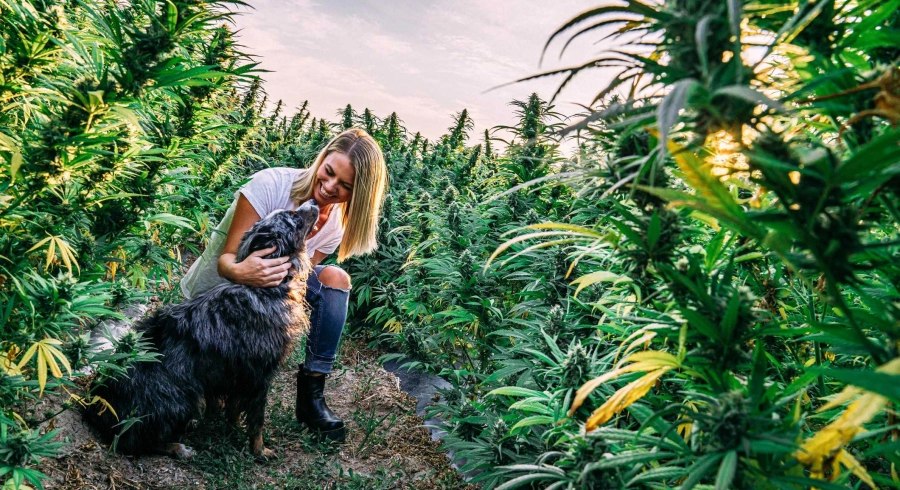Can CBD be used to influence the well-being of our four-legged friends?

As early as 2012, veterinary studies demonstrated the anxiolytic effects of CBD in animals. Since then, further studies have proven the absence of toxicity and dependency associated with the use of CBD in our pets. This is reassuring for both vets and owners!
CBD and animals: an unexplored area
While many studies have been conducted on the effects of CBD in humans, there are few studies on animals. Those published agree that, generally, the effects of CBD are the same in all mammals (including humans and animals). While further studies are still needed, veterinary medicine is already incorporating CBD into its practices.
Unlike THC (tetrahydrocannabinol, the main active ingredient in cannabis which makes it a narcotic), CBD is not psychoactive and is naturally present in the plant. As it is a naturally-occurring compound, it appeals to both vets and owners when it comes to the well-being of pets.
How does CBD work on our four-legged friends?
CBD acts on the nervous system, more specifically on a part of the nervous system that all vertebrates possess: the endocannabinoid system. By acting on the animal’s nervous system, CBD can have beneficial effects on the immune system, sleep, stress and anxiety levels, pain, and appetite.
CBD may have different, beneficial properties which improve our furry friends’ well-being:
• An anxiolytic effect
• An anti-inflammatory effect
• An analgesic effect
• An antioxidant effect
• An antispasmodic effect
These different properties calm your pet down when it is stressed, and relieve mild pain and itching, etc. CBD thus helps it to regain its appetite, vitality, and energy for a better balance in its daily life.
And just as in humans, the use of CBD can help animal’s with epilepsy.
How should you use CBD in your pet?
CBD is available in many forms that may be suitable for animals: oils, tablets, capsules or powders. Therefore, for example, you can put a few drops of CBD oil in your dog’s or cat’s bowl. For an optimal effect, vets recommend administering the product directly into the animal’s mouth. This allows you to more accurately control the dose it ingests.
As far as doses are concerned, it all depends on the desired effect. To manage anxiety or mild pain, 2 mg per kg twice a day is sufficient. And for epilepsy, 2.5 mg per kg twice a day is recommended.
Vets suggest starting with low doses (0.5 mg per kg in several doses) and gradually increasing the dose while monitoring the animal’s reaction. The maximum dose without side effects is estimated to be 20 mg per kg to be administered a minimum of twice daily, but more if possible.
After many years of experience, and thanks to all the feedback from owners, it appears that very low doses are sufficient to obtain the desired effect. Therefore, it is increasingly recommended that treatment is started with doses of 0.3 mg per kg in several doses, and then increased gradually if necessary.
In addition, CBD can be taken as a supplement to medical treatment (for example, in epilepsy). However, we advise that you discuss this with the vet to ensure that there is no risk to the animal.

Leave a comment
Comments
CBD pour chien
Suzanne dernis September 27th 2022mon lhassa apso (12 ans, 11 kg, arthrose de la hanche) marche d'une façon plus alerte durant la promenade et semble plus guilleret ; il paraît aussi un peu moins enclin à vouloir faire la peau à tous les congénères qu'il rencontre
Cbd pour mon chien
Rojas April 6th 2022Bonjour, mon chien est hyper stressé il se gratte énormément et se ronge les pattes juskau sang mon veto dit que c est un chien trop nerveux pour résumer. Que puis je lui prendre pour le soulager ?
Flavie L May 16th 2022